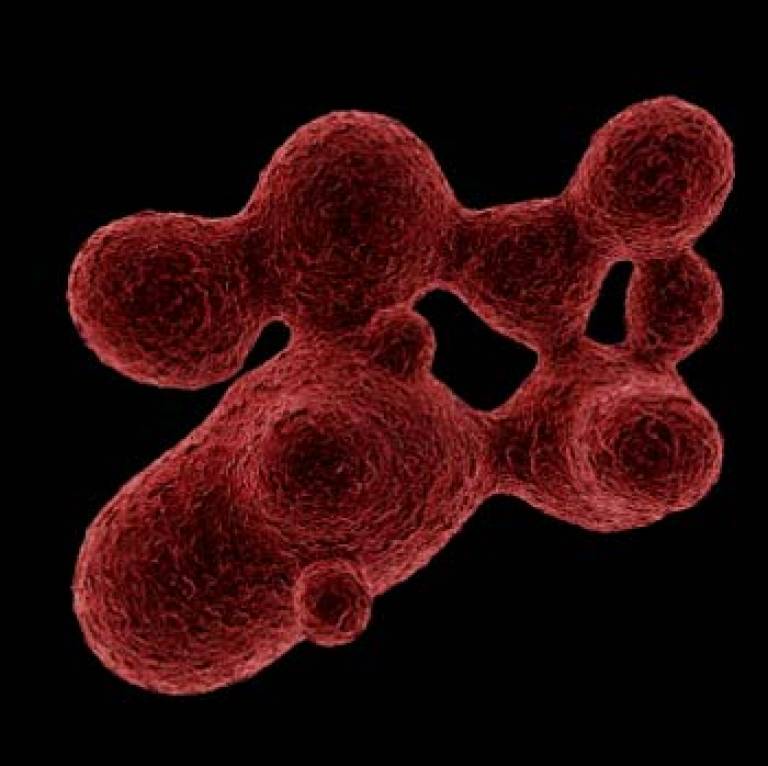Professor nominated for pioneering drug research
2 March 2010
Links:
 ucl.ac.uk/cdb" target="_self">UCL Cell and Developmental Biology
ucl.ac.uk/cdb" target="_self">UCL Cell and Developmental Biology
A UCL professor has been nominated for an award for developing a drug that makes wounds heal faster.
Professor David Becker (UCL Cell and Developmental Biology) is one of seven finalists nominated for the Biotechnology and Biological Sciences Research Council's 2010 Innovator of the Year Award competition.
The finalists are competing for a £5,000 prize in each of three categories - Commercial Innovator, Social Innovator and Most Promising Innovator - and one of them will be crowned overall Innovator of the Year 2010, receiving a further £5,000.
Professor Becker and his colleague Professor Colin Green, from Auckland University in New Zealand, have developed a drug called Nexagon, a gel that can be applied to wounds to make them heal faster - or in the case of chronic wounds, stimulate them to heal.
Chronic wounds represent one of the most significant and growing unmet medical needs in the world today, with only a handful of treatments available.
Nexagon targets a protein responsible for cell-cell communication. This protein needs to be removed in the cells at the edge of a wound in order for them to migrate forward and close it. In the case of chronic wounds, cells produce too much of the protein and fail to migrate. The protein also governs the leakiness of blood vessels at the injury site, which is linked to inflammation.
By influencing the production of this protein, Nexagon makes wounds heal faster and better, and seems to be able to stimulate healing of chronic wounds such as venus leg ulcers.
Professor Becker said: "There are currently very few effective treatments for chronic wounds, which can persist for years and are very detrimental to the quality of life of the elderly, who tend to suffer from these debilitating wounds.
"The Nexagon technology is applicable to a wide variety of wound types where it improves the rate of the healing process while reducing inflammation and scar formation. There are clearly multiple potential applications.
"One of the most important applications is to promote the healing of diabetic wounds, which are notoriously slow to heal and often result in chronic wounds that lead to amputation of lower limbs.
"Phase II clinical trials on venus ulcers are underway and looking promising. If this proves successful it will be of great benefit to patients and healthcare services alike as there is currently no effective therapeutic treatment available.
"The economic impact of being able to stimulate the healing of chronic wounds is considerable given the size and costs of the worldwide market and growing numbers of patients."
Professor Becker and his fellow finalists will present their work to a judging panel on 18 March and the winners will be announced later that evening during an awards ceremony and gala dinner at Canary Wharf, London.
Image: a human blood cell seen through an electron microscope.
UCL context
The Research Department of Cell and Developmental Biology is one of the largest departments at UCL. It is part of the Division of Biosciences in the Faculty of Life Sciences and brings together cell, developmental and evolutionary biologists.
Related stories:
Surgery halves death risk for stroke patients versus 'stent' treatment
New study into dementia within the Deaf community
 Close
Close

